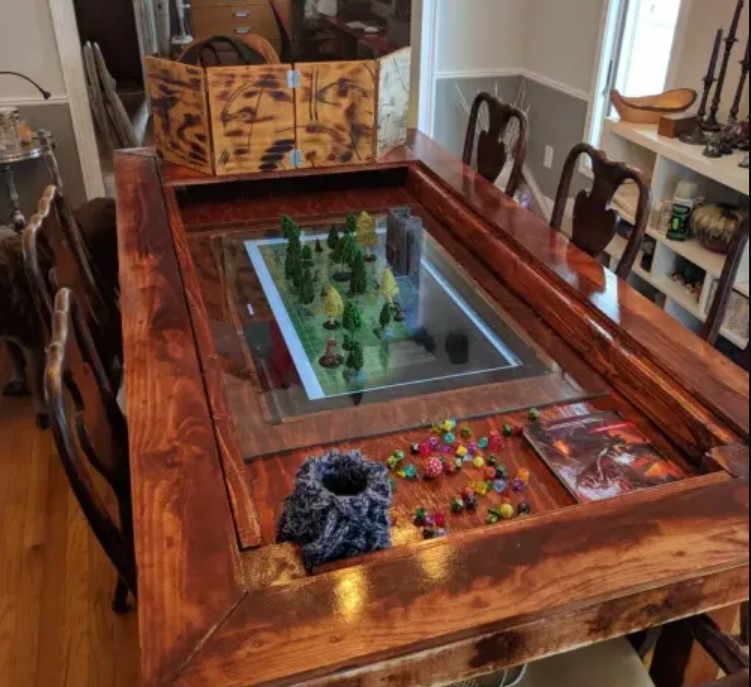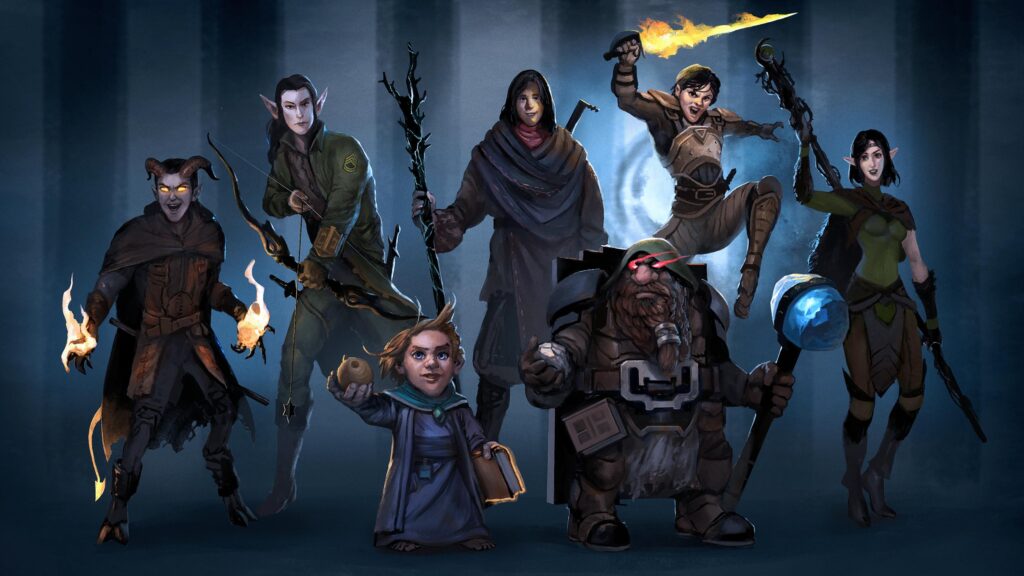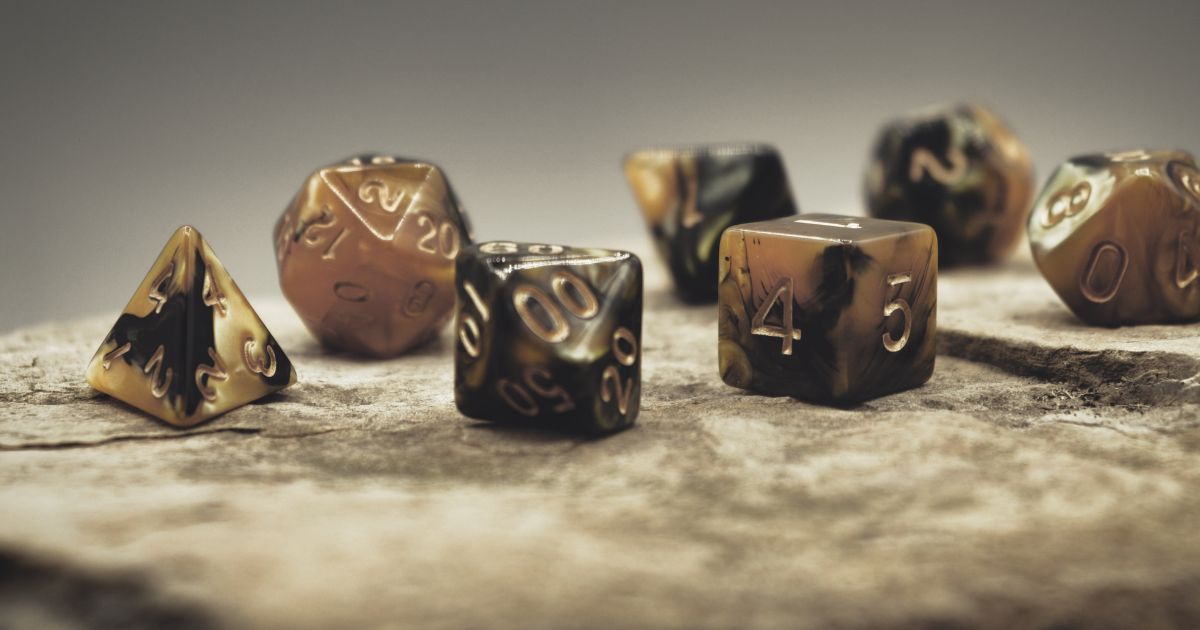What if I told you that over the next few months, you and your team have to plan a timeline with progress towards a specific goal, with a leader directing your actions, telling you what you know and don’t know? You get to bond with your team over the experience, learn new skills, overcome hardships, and there will always be that one guy playing music in the corner.
Sounds like a typical sprint? Wrong! I was talking about a Dungeons and Dragons campaign.
DnD for Scrum… really?
If you’re in IT, you’ll know that Scrum teams can be some of the most inconsistent workers out there. There are periods of almost no work or light work. And then there’s the sprints. You’ll be lucky to hear from a person in a sprint at all. Have you seen the meme of a person working on vacation? That would be your sprint friend.

Do you know who else has wildly inconsistent patterns like this? Dungeons and Dragons players, who can go months without playing or doodling around a single character sheet, to 18 days sitting around the same table surviving on Red Bull and coffee trying to work their way out of one unfortunate tavern brawl.
Jokes aside, it turns out playing DnD can prepare you for Scrum life pretty well, and vice versa. In fact, DnD has been lauded as a great team-building exercise in general. This works the other way around too! Corey Stewart, for example, talks about how he uses Scrum to enhance his DnD experience and why that works. Stewart has implemented practices such as backlogs, daily Scrum, and sprint planning into his DnD campaigns in the form of side quests, recap sessions, and campaign planning and feedback, and maintains that this made him a better DM.
Roll the dice; whose turn is it?
The first and paramount role in a Scrum team is the Scrum master, and it’s surprising how many of them are also DMs (Dungeon Masters) in real life. Many of them write about how being versed DMs helped them understand Scrum better.
Bert Hopkins in Agile42 puts it best: “At Agile’s core is the principle of continuing to deliver a quality, functional product at the end of every sprint. The DM’s job is no different. If the DM fails, the PCs leave. The party gets together every week to play D&D because they want to tell a story that engages and excites them. The DM’s product, the story, develops like any Scrum team’s product: action by action and scene by scene over several sessions, just like products are assembled over a series of Sprints.”

In short, the DM or the Scrum master is the glue – and occasional pain in your neck – that holds the whole thing together and nudges the team towards the final goal. They can be a benevolent leader or a sadistic agent of chaos.
That isn’t the only character that translates well to Scrum. The rest of the team may be players/developers, but that doesn’t stop them from having unique roles. For instance, how many of you have called your technical lead a whizz? That may be because they’re a classic wizard/mage, highly specialized, and maybe just slightly intimidating. That one coworker – if you’re lucky to have one – who always brings snacks and/or moral support? Probably a cleric, whose role in DnD is to support and heal your team. And the one guy in the corner with 20 tabs open and music coming out from god knows where is definitely the bard, sometimes motivational, sometimes annoying, and always chaotic. DnD’s lockpicking rogue is probably your Scrum team’s nitpicking QA.
The Ultimate Bonding Experience™
The similarities between Scrum and DnD don’t end at team roles, however. They’re also surprisingly similar in terms of learning experiences. For starters, both consist of small groups with a diverse array of individuals suited for different things but together are perfect (or so we hope) for the task at hand. Both are adventures into uncharted territory, and you just have to trust that your team and your leader have your back.
On a related note, it’s all about winning as a team. There’s no room in either DnD or Scrum for heroes who go rogue and try to fix the world. In DnD, that will likely get you killed. In Scrum, that will likely kill your career.

Both will test your patience; a seemingly harmless tweak may boil into an inferno, or a fumble here and there will set you back or lead you down an entirely different path. Improvisation is key. All the while, time management is of the utmost importance as well. Certain roadblocks may seem to have no solutions for a while – you may end up having to abandon your path entirely.
Both come jam-packed with surprises and occasionally, these surprises may be good. An unexpected level-up for the team fighter, a dev who performs surprisingly well under pressure. You never know what tomorrow may bring.
Should you be trying DnD?
Whether you’re in a Scrum team, another team, or no team at all, DnD is definitely something to try at least once in your lifetime. Regardless of your level in life, DnD is a great way to learn new skills or upgrade existing ones. Teamwork, patience, adaptability, and strategizing are just a few ways in which DnD can upgrade your Scrum team experience. All that aside, it also provides you a way to be someone else for a period of time. Whoever said your dreams of having superpowers or riding a dragon had to die when you grew up? DnD allows you to escape your regular life and be a decorated hero somewhere else instead, if only for a little while. If that still doesn’t appeal to you, look at it this way – you can always abandon any semblance of decorum and be a chaotic bard instead.







GIPHY App Key not set. Please check settings